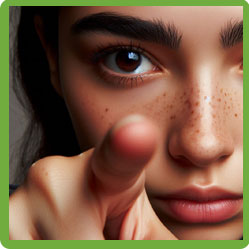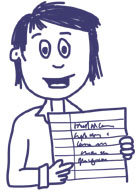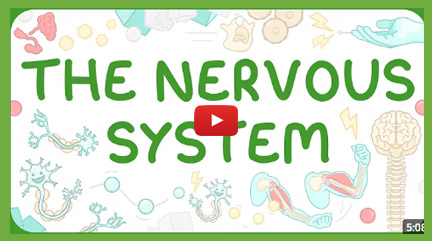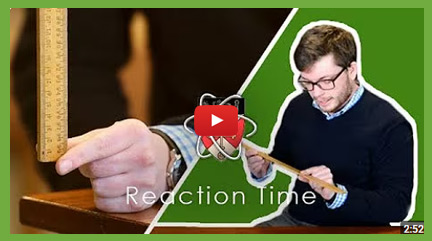
The Human Nervous System
The human nervous system is how your body detects and responds to changes in the environment. Learn how the brain, spinal cord, and nerves work together to send signals, how reflexes protect the body, and how scientists study the brain. This topic helps you understand how we sense the world and react to it quickly and efficiently.
Practicals on this page:
Reaction Times
Homeostasis – Keeping the Body Balanced
Homeostasis is the process your body uses to keep internal conditions stable and constant, even when the external environment changes. It helps regulate things like:
- Body temperature
- Water levels
- Blood sugar levels
The nervous system and hormonal system work together to detect changes and bring the body back to normal, keeping everything in balance.
The Nervous System
The nervous system allows your body to detect stimuli (changes in the environment) and respond quickly. It consists of:
- The central nervous system (CNS) – the brain and spinal cord
- Sensory neurones – carry messages from receptors to the CNS
- Motor neurones – carry messages from the CNS to muscles or glands
- Effectors – muscles or glands that carry out the response
This system makes sure you can respond to things like heat, sound, light, or pain quickly and appropriately.
Revision Notes

The Cornell method is like a supercharged note-taking system that helps you ace your revision!
Print out our blank revision notes pages to help you revise.
How to make effective revision notes with the Cornell method.
Exam Questions & Answers

Download and print off practice our FREE worksheet with exam style questions on Cell Biology.
Synapses and Reflexes
A synapse is a tiny gap between two neurones. When a signal reaches a synapse, it triggers chemicals called neurotransmitters to carry the message across to the next neurone. This allows impulses to travel throughout the nervous system.
A reflex is an automatic, rapid response to danger – like pulling your hand away from something hot. Reflexes protect you and don’t involve the conscious part of your brain.
Reflex actions follow a simple reflex arc:
Stimulus → Receptor → Sensory neurone → Relay neurone (in spinal cord) → Motor neurone → Effector → Response
The Brain
The brain is the most complex organ in the body and is part of the CNS. It controls everything from thought and memory to balance and movement.
Key parts include:
- Cerebral cortex – responsible for memory, senses, consciousness, and language
- Cerebellum – controls movement and balance
- Medulla – controls unconscious actions like breathing and heart rate
Scientists study the brain using MRI scans, studying patients with brain damage, and electrical stimulation, but understanding it fully is still a challenge.
The Eye
The eye is a sense organ that detects light. Important parts include:
- Cornea – bends light as it enters
- Iris – controls how much light enters the pupil
- Lens – focuses light onto the retina
- Retina – contains receptor cells (rods and cones) that detect light
- Optic nerve – carries impulses from the retina to the brain
The eye adjusts to light levels and focuses on near or far objects using a process called accommodation.
Vision Defects
Sometimes, the eye doesn’t focus light properly:
- Short-sightedness (myopia) – light focuses in front of the retina; distant objects look blurry. Corrected with concave lenses.
- Long-sightedness (hyperopia) – light focuses behind the retina; nearby objects look blurry. Corrected with convex lenses.
Other treatments include laser eye surgery or replacement lenses in more severe cases.
Also see Light, Hormonal coordination, Homeostasis
PRACTICAL - Reaction Times
In this required practical, you’ll measure how quickly someone responds to a stimulus — usually using the ruler drop test. One person drops a ruler without warning, and the other catches it as fast as possible. The distance the ruler falls is used to calculate reaction time.
You can also investigate how caffeine or other factors affect reaction time. This practical shows how the nervous system helps us react to our surroundings and how different variables can influence our responses.
Revision Notes

The Cornell method is like a supercharged note-taking system that helps you ace your revision!
Print out our blank revision notes pages to help you revise.
How to make effective revision notes with the Cornell method.



